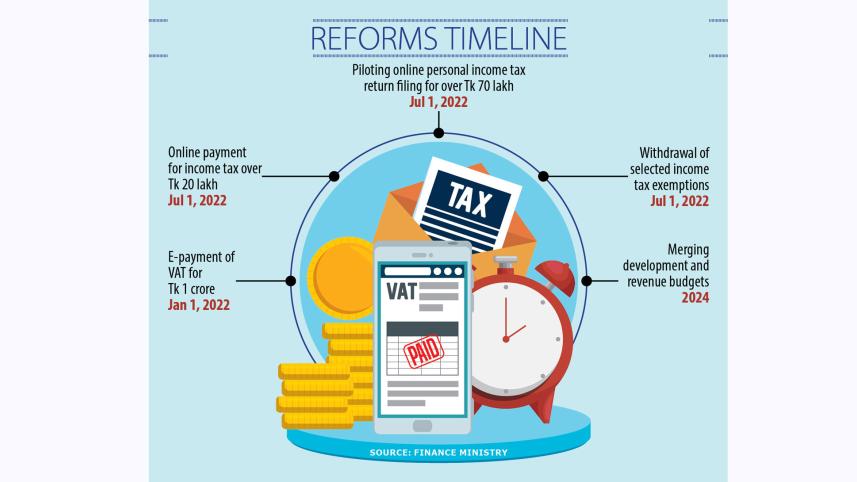Reforms are good only when they are fully enforced

It is good to see the government planning to merge the development and revenue budgets, amend income tax laws and establish a procurement authority in the next three years, as part of a set of reforms aimed at boosting revenue collection and ensuring transparency in expenditure. On the one hand, revenue generation in Bangladesh is one of the lowest in the world because of tax avoidance, a long list of exemptions, lower taxpayer base, and weak enforcement. On the other hand, public expenditures face leakages and are not efficient. Therefore, there is no doubt that the tax system and other revenue policies need significant reforms, and that government expenditure has to be more efficient. What we are concerned about, however, is how serious the government is when it comes to implementing such highly ambitious reforms.
The government has planned the aforementioned reforms in an attempt to satisfy its development partners, and the timeline set is also a part of that. But this is not the first time we have heard the government prepare such reformation plans. For example, we have been hearing the government talk about restructuring the tax laws since 2010. But we have yet to see the government get anything done in that regard. To some extent, the same applies when it comes to reorganising the VAT laws, where the government's execution failed to match its promises.
The main objectives of its latest reform plans have to be to streamline expenditure—by reducing the huge leakages that usually occur—and increasing the government's earnings—by ensuring that tax avoidance is cut out. And to that end, although such reformation plans are welcome, what is more necessary is their proper and timely execution. It is in the latter department that the government has failed time and again. And, because of that, we cannot help but remain somewhat cautious in regards to our expectations from the government's recent proposal.
Just forming laws is not going to lead to reforms in and of themselves; the government has to execute them properly as well. And to figure out how to best implement them, we believe the government should involve experts in its planning process. To generate enough revenue for the various infrastructure projects that Bangladesh so badly needs for its development, there is no substitute to carrying out such reforms. What the government must do is ensure that these reforms are fully implemented, instead of falling midway through, as they have done previously.



 For all latest news, follow The Daily Star's Google News channel.
For all latest news, follow The Daily Star's Google News channel.
Comments